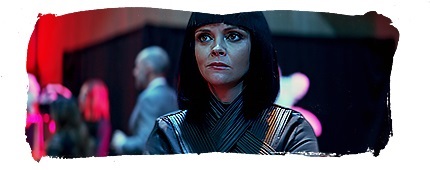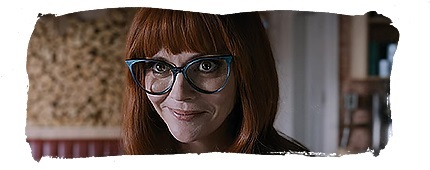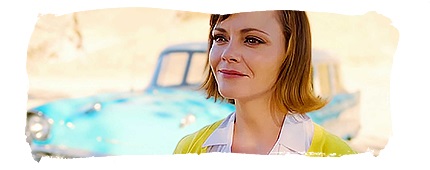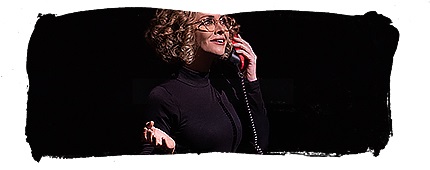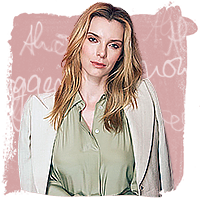
Vanity Fair – June 17, 2022
Hillary Busis
June 17, 2022
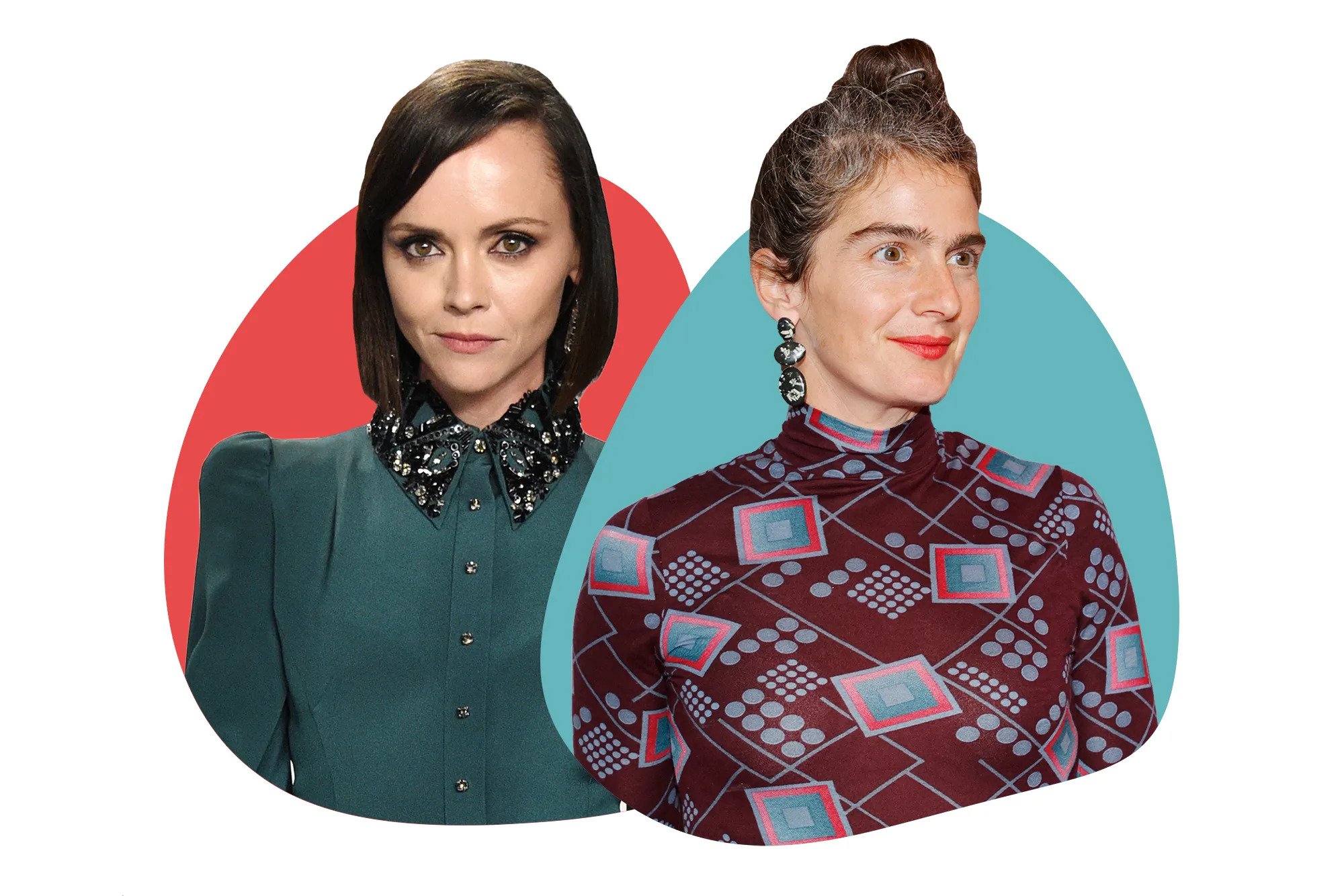
In Reunited, Awards Insider hosts a conversation between two Emmy contenders who have collaborated on a previous project. Today, we speak with Yellowjackets star Christina Ricci and Winning Time star Gaby Hoffmann, who previously worked together in Now and Then and 200 Cigarettes.
Gaby Hoffmann has no complaints about the time she spent shooting Now and Then in the fall of 1994. For her, though, the real draw was what would happen after director Lesli Linka Glatter called “cut”: “It was like, Okay, when can we get to the real good stuff?”
That would be making trouble with Christina Ricci, who starred alongside Hoffmann, Thora Birch, and Ashleigh Aston Moore in the film about four friends coming of age in small-town Indiana in the summer of 1970. The movie’s die-hard fans will be thrilled to learn that Hoffmann and Ricci quickly bonded off-screen as well, forming a tight dyad as they took in multiple screenings of Pulp Fiction and “did stupid things” at the local mall. “We were obsessed with each other,” Ricci agrees.
Their affection is nearly palpable even on Zoom, where Ricci and Hoffmann have reunited to discuss not only the touchstone they filmed as kids—though the movie is “really silly in a lot of ways,” says Hoffmann, “watching it [again], I really get why it’s this thing for women”—but also their decidedly more mature current projects. Winning Time features Hoffmann as steely business whiz Claire Rothman, one of the only women in the orbit of the “Showtime”-era L.A. Lakers. Yellowjackets, a dark descendent of Now and Then, stars Ricci as Misty Quigley, one of four women who survive into adulthood after their high school soccer team’s plane crashes in the Canadian wilderness in the spring of 1996. (Now and Then featured Ricci and Hoffmann as the younger versions of Rosie O’Donnell and Demi Moore, respectively; in Yellowjackets, Samantha Hanratty plays the younger version of Ricci.)
Hoffmann, by the way, says she’s too much of a fraidy-cat to watch the bulk of Yellowjackets—“but I skipped through and watched all your stuff, Christina, and it is so fun to watch you play this part. You can tell that you’ve been itching for it,” she tells Ricci.
Her old friend’s response is music to an elder millennial’s ears: “Be on the show. How do we get you on Yellowjackets? I mean, I know you have other stuff going on, but couldn’t you guest star?” Hoffmann says she’d love to, “as long as it’s not scary. I’m a real wimp.” When Ricci assures her she’d be safe, Hoffmann acquiesces. “All right. Let’s plot that.” Showtime, are you listening?
Vanity Fair: What do you each remember about the first time you met?
Christina Ricci: We knew each other for a very long time before we were friends, because Gaby and I would always run into each other at auditions when we were children. I think the first time I met you, you were seven years old or something. Gaby was the most adorable little girl: long legs, [like a] colt, and then crazy, huge hair. I wanted to be friends with her for a long time, and then we ended up on a movie together. Do you remember when we all met at Demi [Moore]’s trailer?
Gaby Hoffmann: No, I don’t! I have such a bad memory.
Ricci: Demi was going to decide when she met us who was going to play [the younger version of] her. And then we hung out. We were weird preteens, and we walked across the lot and then snuck off together. And all Thora [Birch] wanted to know was how many boys we’d kissed.
Gaby, what was your first impression of Christina?
Hoffmann: To me, the story of making that movie was falling in love with Christina. I was obsessed with her. We really had fun. We went to the mall every weekend to see Pulp Fiction and played these weird games.
Ricci: We called it “sabotage.”
Hoffmann: Sabotage!
Ricci: Based on the Beastie Boys song.
Why do you think you connected so immediately?
Ricci: Well, I was definitely not quick to make friends. I wasn’t exactly friendly at the time.
Hoffmann: I was the only person she liked!
Ricci: Gaby used to be like, “Everybody’s afraid of you, Christina.”
I think in the industry, I probably had met a lot of children that were really disingenuous and didn’t seem like real kids. Gaby and I—yes, we were actresses, but we were also real teenagers who did stupid shit and got in trouble and pursued having real childhoods. And I think that was why we connected.
Hoffmann: I didn’t even consider the fact that I was an actress until like five years ago. So it definitely wasn’t that.
On YouTube, there’s a clip of you two doing press for the movie. The interviewer asks if you would rather be kids in the ‘90s or in the ‘70s, and you’re both like, “The ‘70s were boring, and everyone was so naive!”
Hoffmann: What the fuck were we talking about?
Ricci: And we have our shoes off, we’re loud. You haven’t seen this clip before? That was that time that, remember, the interviewer came into that junket, and we laughed for his entire six minutes—and he got so angry, and he made them give him another six minutes.
Hoffmann: I mean, we must have been really obnoxious.
Ricci: So obnoxious, it’s insane. I want to reach through the camera and smack us.
Hoffmann: It might have been one of the reasons that we bonded, too—maybe we just thought we were cooler than we were. What the fuck were we talking about? What did we know?
Was there any disconnect between the characters that you were playing—these suburban kids on bikes—and your reality of working 12-hour days, having to be very professional and responsible?
Ricci: I never really thought about that. I mean, obviously we were aware that we did not live the lives of average children, but I don’t think it was something that got in our way at all.
Hoffmann: Yeah. I think we were both used to it. I mean, I fantasized about a suburban life—
Ricci: Me too.
Hoffmann: —because foolishly, I thought that if one had a picket fence, one would have a quote-unquote normal family life. I learned that, of course, is not the case. But I think for both of us—and I’d love to hear how this has changed for you over the years—quote-unquote working or acting really felt like a natural thing.
Ricci: Yeah. I agree. It’s probably why we were good at it, because it came very naturally to us.
You reunited again a few years later for 200 Cigarettes, which came out in 1999.
Hoffmann: Oh my God. That was also a lot of fun.
Ricci: I was her legal guardian. And as her legal guardian I would have the teamsters drop us off at Cherry Tavern every night after work.
How old were each of you at this point?
Ricci: I was 18.
Hoffmann: So then I must have been 16.
And had you kept in touch between those two movies?
Hoffmann: That’s why we did 200 Cigarettes. I think you got the part, so then I decided to do it—or vice versa. Just so we could not interrupt our schedule of going to Cherry Tavern every night.
Ricci: Do you remember when we accidentally stole [their 200 Cigarettes costar] Courtney Love’s clothes? You took the bottoms and I took the top, and I wore the top into makeup. And she came in and accused me of stealing her clothes.
We were both obsessed with Courtney, and hadn’t met her, and we’re really excited. And we were in one of the transpo vans, and the guy’s like, “Hey did either of you guys leave this top and pants here?” They were Voyage, which at the time was exciting. He was like, “I don’t know, it’s been here for two weeks. You can take it.” I immediately changed into the top and wore it into the makeup trailer. And Courtney was like, “Did you take my fucking clothes?”
Hoffmann: Oh my God.
Ricci: I literally wanted to die.
Hoffmann: I went to a strip club in Vegas with Courtney Love when I was like, 17 or 18. You were there!
Ricci: Yes, and we couldn’t get in! We were chased off the floor of the casino because we were teenagers, and then Courtney was like, “We’re going to go to this strip club.” We met her there but we couldn’t get in.
Hoffmann: All the stories are kind of like this, I think.
Ricci: Basically us trying to do stuff and realizing that we’re 12. Actually, this was one of our jokes. We’d be out at night, or in some crazy situation, and we’d turn to each other and just be like, “Where are our parents!?”
Hoffmann: Yes, I do remember that.
Christina, you’ve worked steadily onscreen since your child star days; Gaby, you took a hiatus from acting before returning to it as an adult. At what point for each of you did acting start to feel like something that you were choosing, versus a career that had been chosen for you?
Hoffmann: For me, I thought I would stop acting when I was old enough to go to college. It was not something I thought about doing [as an adult] really ever. I liked being on movie sets a lot, because they’re a lot of fun and I loved being around adults—and then as I got older, my peers, like Christina. But I just was doing it until I could start my real life.
And then all through my twenties, I was pretty much a mess and didn’t know what I wanted to do. I thought I wanted to do all these other things, but couldn’t commit to any of them. I wasn’t really working, and I didn’t have access to good roles because I hadn’t worked for so many years. And it was a long period of time before I was able to turn back toward acting with any real seriousness. I was about 30, and I’m 40 now.
Once I opened up to it a little bit, I discovered that I really loved it. And so I’ve been in that phase for the last 10 years. It still feels very new to me. I still feel like, “Oh, what am I doing?”
Ricci: I remember when I was 13, being on a job and walking through the lot and thinking to myself, “Yeah, I’m going to do this the rest of my life.” So I was very serious about it from that point on. I never really considered doing anything else, except for evolving in my career—becoming a producer or a director or things like that. But there was never anything I wanted to do that wasn’t within the film industry.
There’s a very obvious through line from Now and Then to Yellowjackets in that both of them are narratives split between the past and in the present, although Yellowjackets has a much darker, more cynical view of female relationships. Christina, what drew you to the show, and to Misty specifically?
Ricci: I did the show specifically for this character. I wanted to play this character so badly that the rest of it almost didn’t matter to me in the beginning. The character was written in such a way where [she does] all of these different traits that I’ve wanted to show and I’ve never been allowed to before, because passive aggression is too confusing for people. “Well, you’re smiling, so we can’t really tell that you’re angry. I mean, what if the audience can’t tell?” She’s passive aggressive, she’s petty, she’s gleeful. I love the idea of a character that’s just having the best time.
Right. Misty could just have been a one-dimensional menacing little creep—but she’s just having a blast.
Ricci: Yeah! She loves chaos. I’m a natural contrarian, and I think that this character is so contrary in everything she does. And I love playing someone who has no social value—the way she looks, the way she dresses. I remember during the camera test, one of the young actresses watched me do my date makeup. The look of horror on this girl’s face! I walked out of the trailer, I heard her turn and say, “But she’s not actually going to go on camera like that.”
Whereas Claire, Gaby’s character on Winning Time, very much feels like the adult in the room.
Hoffmann: Yeah. My husband said, “It will be so fun to get to watch you play a heterosexual neoliberal adult.” I sort of perpetually play these overgrown children, or crazy wild child types. It was very appealing to play something so far from anything else I’d done.
I had just had my second child. I really like making TV as a parent, because you know you’ve got a job that gives you a lot of time to be home with the kids, and you’ve got a steady income. So I had finished making Transparent, and this was a very comfortable next step, with amazing people behind it. And it was actually going to be a limited series, so it was a small commitment. Now it probably won’t be. And yes, getting to play this sort of badass… I mean, she’s a grandmother. I was very excited about the fact that I got to play a grandmother, and I wasn’t going to have to dye my grays. As little physical upkeep as I have to do is kind of my main objective.
I’ve had wonderful experiences which were much more fluid and creative—a lot of improv and a lot of figuring things out collaboratively on set. This is like, you come in, you’re like a sharp shooter, you leave. It’s a different kind of system than I’ve ever really worked in, and that was very appealing to me, especially as a new mom of a second baby.
Not being challenged to think of stuff yourself when you’re in that state seems like a plus.
Hoffmann: Yeah, being a cog in a machine actually felt very appealing to me, which I never thought I’d hear myself say. I didn’t have much to do the first season; I really was barely there. But it’s an exciting world that has so much potential.
Both shows, like Now and Then, are really ensemble heavy. What types of co-stars do you feel like you work best with?
Hoffmann: The ones who aren’t assholes. [Laughs] I’m just kidding—I really love most actors. I know we get a bad rap, but most actors I know are incredibly curious, intelligent, funny, caring, thoughtful people.
Ricci: Yeah. I don’t have any specific type that I prefer to work with. I mean, just the basics: professional, on time, respectful. Sorry, my baby is making noise in the background.
Hoffmann: How old is that baby?
Ricci: She’s six months old.
Hoffmann: Aw!
Ricci: Do you want to see her?
Hoffmann: Yes!
[Ricci, who’s calling from a family vacation in Mexico, flips her phone camera to show her baby daughter, her 7-year-old son, and her husband, then re-enters the frame.]
Do you feel the same as Gaby, that working in TV is easier as a parent?
Ricci: Yeah. I mean, one thing that logistically is great about Yellowjackets is that because it’s such an ensemble cast, I usually only work three days an episode. TV does generally have better hours and structures. It’s more control. You’re on some indie, and they want you to work 17 hours a day—that’s not okay. But I have been on TV shows where I had to work 17 hours a day. So I think it depends.
Have either of your older kids seen the movies that you made when you were kids?
Hoffmann: Not mine.
Ricci: Not yours, really? Rosie hasn’t?
Hoffmann: I contemplated showing Rosie C’mon C’mon, which is a movie I made that’s about parenting, and the star of it is a ten-year-old boy. And it’s a really beautiful movie that I would’ve felt good showing her, except my character does talk about how difficult it is to be a mother, and says things like, “Sometimes I just hate him.” Intellectually, of course, I know she can get that, but I felt a little protective of her psyche. I just felt like, “Eh, not worth it. You’ll see it one day.” After maybe she’s explored her own feelings about hating me in therapy or something.
Ricci: Freddie has. In fact, I showed him Casper too early. He thought that was my childhood. He told his kindergarten that his mom grew up in a house with a ghost.
Hoffmann: That’s really funny.
Freddie, offscreen: I didn’t tell my teacher that!
Ricci: Yes, you did!












